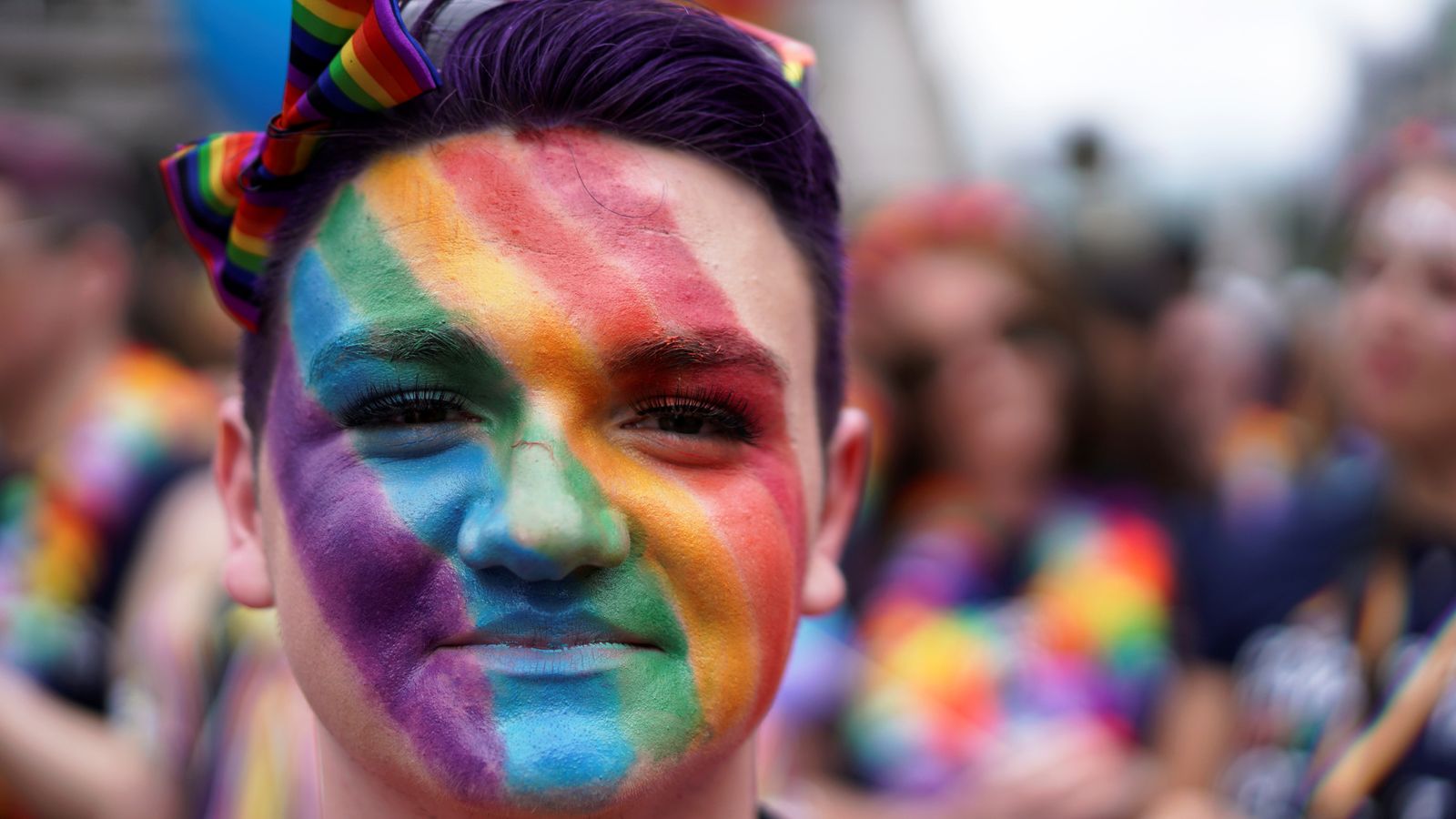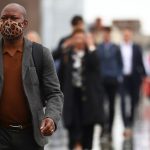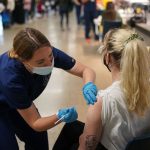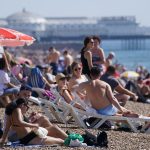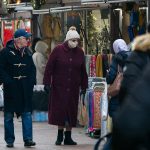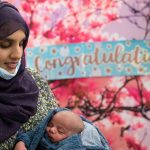The annual Pride festival takes place in London this weekend, with 30,000 people expected to participate.
As the event marks 50 years in the UK, Sky’s arts and entertainment correspondent Katie Spencer and arts and entertainment producer Jayson Mansaray take a look at the representation of the LGBTQ+ community on screen.
In the 1970s comedy greats like Larry Grayson graced the country’s television screens, but the camp presenter never officially came out, likely due to attitudes towards homosexuality at the time. Fast-forward to the present, and popular television has come a long way when it comes to LGBTQ+ representation.
From the wildly successful Russell T Davies series It’s A Sin, through to Bake Off winner John Whaite and dance partner Johannes Radebe becoming the first male same-sex couple on Strictly Come Dancing, it is hard to deny we are in far more progressive times.
But when it comes to dating on the reality show Love Island, ITV producers have cited “logistical difficulties” in diversifying the format to include LGBTQ+. And when asked if they had plans to change the format in the future to allow for same sex coupling, the channel wasn’t definitive.
It told Sky News: “Across our portfolio of dating shows we are committed to increasing the representation of LGBTQ+ relationships, including through recent shows Romeo & Duet, The Cabins, Secret Crush and Ready To Mingle. There is always more to be done and this is a continued focus for us as part of our Diversity Acceleration Plan.”
For Daniel Welsh, entertainment editor at HuffPost UK, committing to representation of LGBTQ+ relationships would help the show’s ratings.
Pride parade has become ‘overly corporate’, says one of UK’s leading LGBTQ+ rights activists
Homophobic slurs and a violent assault – but this man’s attacker can’t be charged with a hate crime
Olympic champion Dame Kelly Holmes announces she is gay – and kept it hidden for 34 years
“The more inclusive you can make a TV show, the more inclusive you make the storytelling, the more interesting it’s going to be for people watching,” he said.
“It’s always going to be more interesting if you include a bigger, more diverse array of content. I think that’s just how storytelling works and how TV works.”
Read more:
Love Island 2022: Meet the contestants ahead of series launch
Audiences are more concerned about discrimination than swearing, research finds
Pride parade has become ‘overly corporate’, says one of UK’s leading LGBTQ+ rights activists
There is a plethora of current reality TV shows that do show more than one specific type of love. On Lovestruck High contestants were straight, gay and all that’s in between.
Married At First Sight featured its first gay couple (Matthew Jameson and Daniel McKee) in 2021, with a lesbian couple expected in 2022.
Demi Sims from The Only Way Essex understands the importance of representation on screen and its perils. When Sims came out she found herself accused of queerbaiting – when someone suggests they may not be straight in order to attract gay fans, while trying not to alienate straight audiences.
“When I finally got the courage to come out, people are then saying I’m lying, and that made me feel even worse because I felt like I’d [taken] this massive leap and I’d finally got somewhere, and people were accusing me of lying… it did really hurt me.”
For Sims, who thinks Love Island is “a good show”, a more progressive change could be beneficial to young people and help normalise the way we see modern relationships.
Introducing LGBTQ+ people to the show would help teenagers growing up to know it is a “normal thing for a girl to love a girl and for a boy to love a boy”, Sims added.
Ru Paul’s Drag Race has been setting the precedent for queer representation since its launch in 2009.
While promoting Debt Free London’s helpline for the LGBTQ+ community, season one star Baga Chipz told Sky News representation on screen has come a long way from when they were growing up
“When I was a kid, all we had was like Lily Savage and Julian Clary… If you look now there are hundreds of drag queens on television, being on the cover of magazines, rocking festivals and that means doing tours around the world, and I never had that as a kid.”
Today, representation on screen is commonplace from Heartstopper to Euphoria, Sex Education to Schitts Creek, and shows such as Batwoman and Loki mean we see LGBTQ+ superheroes brought to life.
And if fictional programming can manage, it does not seem that much of a stretch for producers of structured reality shows such as Love Island to genuinely reflect how many of us live and love today too.
